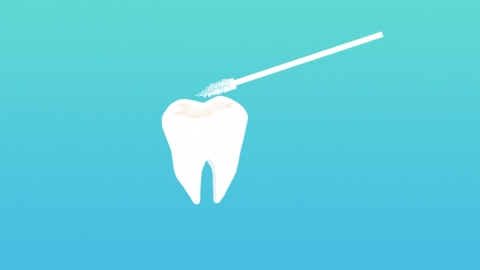What are the disadvantages and benefits of pit and fissure sealing?
Generally speaking, pit and fissure sealing has both benefits and certain drawbacks. Possible drawbacks include the risk of material detachment, improper operation affecting dental health, inapplicability to all teeth, inability to replace daily oral care, and localized discomfort in some individuals. The benefits mainly include prevention of pit and fissure caries, protection of dental tissues, simple and painless operation, long-term effectiveness, and suitability for children and adolescents. A detailed analysis is as follows:
I. Drawbacks
1. Risk of Material Detachment: Frequently consuming overly hard or sticky foods or excessive occlusal forces may cause the sealing material to detach. If detachment occurs and is not promptly detected and resealed, the previously sealed fissures will be re-exposed, still posing a risk of caries development.
2. Improper Operation Affecting Dental Health: Inadequate tooth cleaning before the procedure or insufficient etching may compromise the bonding effectiveness of the sealing material. This not only increases the likelihood of material detachment but may also cause food debris to accumulate in the gap between the material and the tooth, thereby increasing the local risk of caries.
3. Not Suitable for All Teeth: Pit and fissure sealing is only applicable to teeth with deep occlusal fissures that have not yet developed caries. For teeth with shallow fissures, evident caries, or atypical morphology, fissure sealing cannot effectively prevent caries. Performing the procedure blindly in such cases would be ineffective.
4. Inability to Replace Daily Oral Care: Fissure sealing primarily targets the fissure areas of teeth and cannot substitute for daily oral hygiene practices such as brushing and flossing. Relying solely on fissure sealing while neglecting oral care may still lead to caries on the proximal or labial/buccal surfaces of teeth or cause periodontal issues.
5. Localized Discomfort in Some Individuals: Some people may experience mild localized sensitivity to the sealing material, resulting in slight discomfort during occlusion or a sensation of a foreign body shortly after sealing. If the material's edges are uneven, they may also irritate the oral mucosa, requiring timely adjustment.

II. Benefits
1. Prevention of Pit and Fissure Caries: Deep pits and fissures on the occlusal surfaces of teeth tend to accumulate food debris and bacteria, which are difficult to clean thoroughly with routine brushing. Fissure sealing forms a protective barrier on the tooth surface, isolating food debris and bacteria from dental tissues, significantly reducing the likelihood of caries development in these areas.
2. Protection of Dental Tissues: Teeth without existing caries can be protected by fissure sealing, preventing bacterial erosion of the enamel and reducing the risk of dental tissue loss caused by fissure caries. This avoids the need for subsequent restorative treatments such as fillings, preserving the original structure of the teeth to the greatest extent possible.
3. Simple and Painless Procedure: Fissure sealing does not require removal of dental tissue. The process involves cleaning the tooth surface, acid etching, applying the sealant, and light curing. It is painless and well tolerated by children and adolescents, with each tooth typically requiring only a few minutes to complete.
4. Long-Term and Stable Effectiveness: Qualified fissure sealing materials offer good wear resistance and bonding strength. With proper daily oral care, the protective effect can last for several years or even longer, providing long-term caries prevention for teeth.
5. Suitable for Children and Adolescents: Children and adolescents often have newly erupted teeth with deep fissures and relatively poor oral hygiene habits, making them high-risk for fissure caries. Fissure sealing effectively addresses this issue, helping establish early dental protection and reducing the incidence of caries in this population.
To balance the pros and cons of fissure sealing, it is recommended to first undergo a dental examination by a qualified dental professional to determine whether the teeth are suitable for sealing. The procedure should be performed at a reputable medical facility to ensure its effectiveness. Regular follow-up visits are necessary after sealing to check for material detachment, and daily oral hygiene should be consistently maintained to maximize the caries-preventive benefits of fissure sealing.




